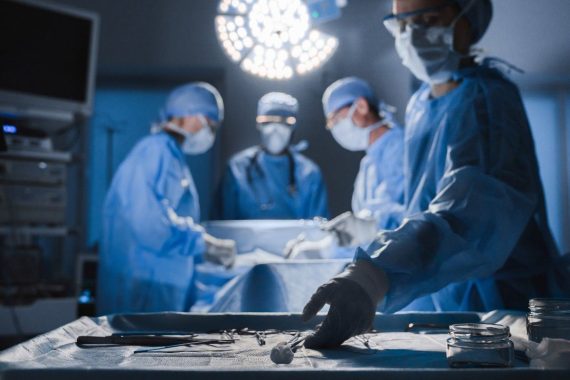Nearly 200,000 appointments and procedures cancelled during last week’s junior doctors’ strike

There were almost 200,000 acute care cancellations, including both appointments and procedures, over the four-day junior doctor strike last week, according to new NHS figures.
At the strike’s peak, there were 27,361 staff absent from work as a result of industrial action, which is slightly lower than the previous strike in March where up to 29,243 staff were absent.
The action, which took place from 11 to 14 April, also resulted in the rescheduling of 4,282 mental health and learning disability appointments and 570 community appointments.
Junior doctors’ four-day strike was over pay, with the BMA saying the cohort has experienced a cut of more than 25% to their salaries since 2008/09 and the average junior doctor earns £14.09 an hour.
It constituted a full stoppage of work, including night shifts, on-call shifts, and non-resident work, while GP practices were encouraged to cancel trainee clinics on strike days.
Over the four days 196,225 inpatient and outpatient appointments were rescheduled, compared with 175,122 acute appointments being cancelled over the three-day strike from 13 to 15 March.
NHS national medical director Professor Sir Stephen Powis said the figures ‘lay bare the colossal impact of industrial action on planned care in the NHS’ and staff now have ‘an immense amount of work to catch up’, which ‘becomes harder’ with each strike.
Health secretary Steve Barclay said the cancellations were ‘deeply disappointing’ and ‘clearly had an impact on many patients as well as hampering our efforts to cut NHS waiting lists’.
He added: ‘We remain ready to start formal talks with the BMA as soon as the union pauses its strikes and moves significantly from its unrealistic position of demanding a 35% pay increase – which would result in some junior doctors receiving a pay rise of £20,000.’
Responding to the appointment cancellation numbers yesterday, co-chairs of the BMA junior doctor committee Dr Vivek Trivedi and Dr Robert Laurenson argued that millions of patients on waiting lists are ‘not in this position because of strikes’.
They said: ‘Persistent under-resourcing of the health service and under-valuing staff – exacerbated by a pandemic – mean we simply don’t have the workforce and capacity to provide the high-quality and timely care that patients need and deserve.
‘This is why we have been led to strike, and while we are of course sorry to anyone who had their care disrupted, this is the same apology we’re already having to give to patients on a daily basis because the NHS cannot cope.’
Dr Trivedi and Dr Laurenson said the health secretary ‘continues to demand that we drop our opening position of calling for a reversal of the pay erosion experienced by junior doctors before he will even enter discussions’.
They said: ‘It is squarely in Mr Barclay and the Government’s gift to stop this dispute and prevent any further disruption.
‘So once again we urge them to drop their barriers to talks and meet with us in good faith, whether that is through the conciliation service Acas, or directly, so that we can solve this dispute for the good of junior doctors, patients and the NHS.’
However GPs told Pulse that practices were ‘definitely’ affected, both due to GP trainees striking and reduced capacity in hospitals.
Pulse October survey
Take our July 2025 survey to potentially win £1.000 worth of tokens











